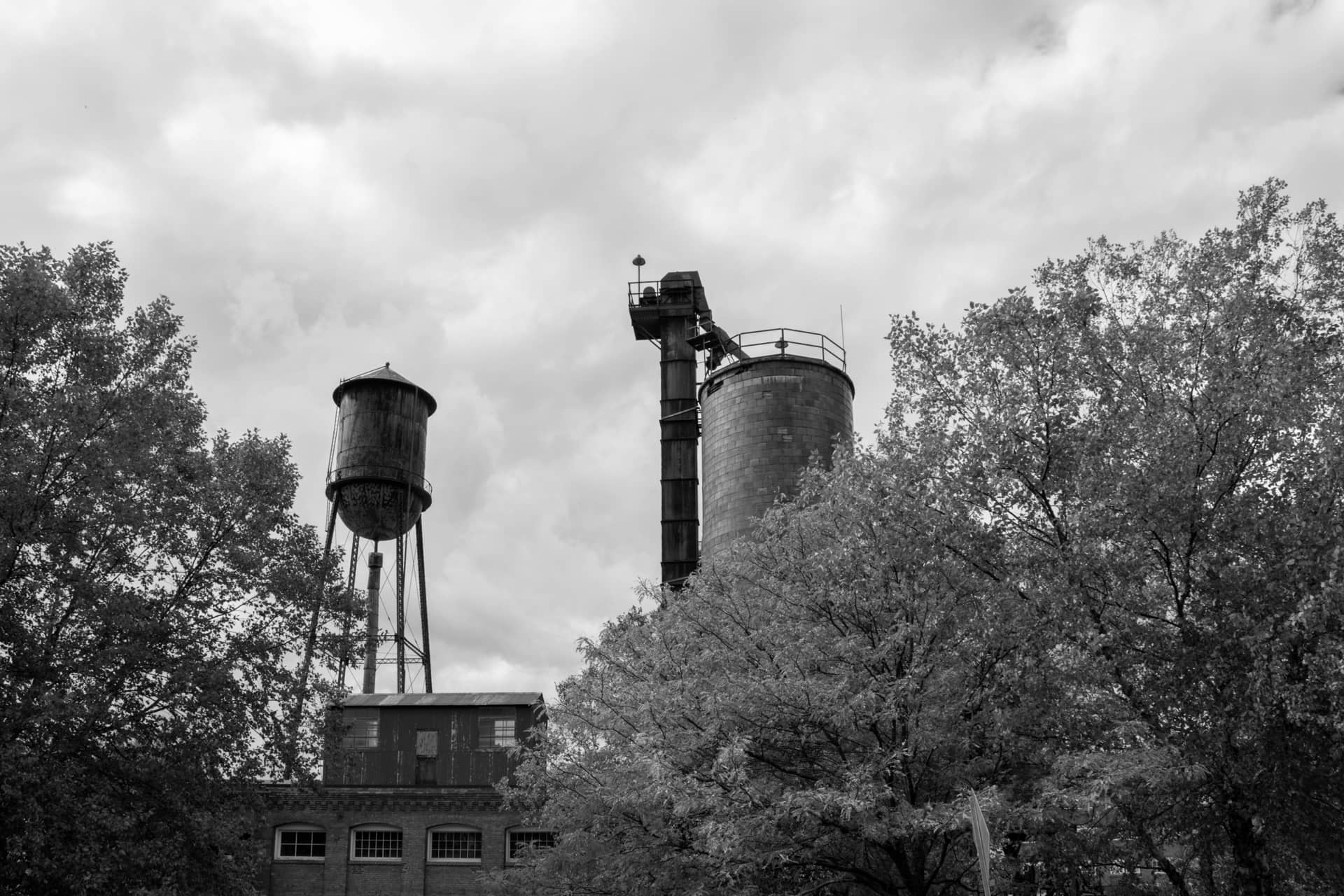It had always been there, until it wasn’t.
The sound was like a low hum, so low as to be inaudible, so modulated as to be the cadence of your own heartbeat. Just like the structure, which was taller than an airplane tower, kept going up and up, seemingly attached to something in the clouds and reach down rather than to stand erect from the ground, it had been there all of my life, all of my parents’ lives, and their parents as well. It just was, and because it existed, they did too. No one understood why that was true, but everyone knew it was. And everyone knew it was their responsibility to protect it…to ensure its safety.
But then something happened.
It’s central to the town; you couldn’t avoid seeing the massive structure of gleaming metal and the network of ramps that snaked around the building to somewhere inside—seven, eight, ten…I never really stopped to count. The red light at the top, perched on the needle-nose that pointed toward the stars, always blinked like a beacon during the day and the ramp lights were steady and perfectly spaced from each other. It was like the facility lights were always on.
My friends and I watched the building sometimes, sitting on an opposite hill, far enough away that no one would see us if they looked, waiting for the moment when those lights would switch on, but we never saw it happen. Nobody did. The white lights illuminating either side of the ramps always seemed to be there, lighting up the night, making our little town visible for miles and miles if you knew what to look for. My friend Chris would wonder out loud if the lights at the facility could be seen from space; he did it all the time—it was like clockwork.
Once every few months, especially in the summer when we’d find ourselves on that hill looking out over the nothingness that made up our little corner of Earth—the neon signs for fast food joints, the stop lights, the 24-hour gas stations—he would ask that, would throw it out into the night, his voice wistful and curious, like it was the first time. We’d always say the same thing back or some version of that same thing—the answer changed as we got older, and matured as we moved from middle school to high school, on to college, and then when we assembled from as far as Los Angeles to celebrate Vern’s wedding, and when we did the same for Cal’s funeral, 68 years from the day we first sat on that hill to stare at the facility. We said of course not, that our little town wasn’t important enough to be the thing seen from space, that if other places with more relevance couldn’t be seen with their names in neon, then why would our little town in the middle of nowhere be? We said this not without a little bitterness, as if the town owed us impact, flash, style…as if we wanted to go out and get those things or, later, wanted to have achieved those things in spite of our homestead. None of us knew why either. But there was a feeling that we all harbored about this place we called home, an uneasy, unsettled thrum that we felt when we were here and carried with us when we left.
And none of us left for long.
No one ever did.
The facility was part of our community but no one seemed to know how. No one we knew worked in the building that towered over everything; no one ever drove deliveries there or had to yield to traffic coming out of there. No one knew what was being made there. There was never an influx of new, shiny things in town—businesses, construction, whatever—which meant that no one outside of our neck of the woods understood it either, not what it was or how to capitalize on it. But when other areas experienced droughts, our reservoirs were full. When farmers across the country complained of insect infestations, widespread fungal infections, global warming, whatever it was that they thought was producing low crop yield, our local farmers flourished.
Fires never burned.
Tornados never touched down.
Water never rose high enough to damage anything.
Toxins never threatened.
Not in our town.
Current events felt like history in schoolbooks, like stories from another time and space, because the things the country was going through never happened to us.
That’s just the way it was.
I took a right instead of a left on the street the facility sat on one day, compelled to do it then, right then, if no other time because my father was dying in the seat next to me, he was grabbing at his shirt until his knuckles were white and his breathing was hoarse and raspy and tortured. And I turned toward the facility instead of the hospital because that’s what the pull in my heart said to do; that’s what the pulse that thrummed in my brain commanded.
As we drove home, my dad told me never to tell anyone what happened that day, how we lost time when the gate to the facility was in view, how we found ourselves on the side of some back road at the edge of the county that we had never travelled…that was at least 10 miles away from where we started. How we both remembered seeing the clock read 9:10 p.m. when we were near the gate, then, as if we had hit the snooze button, it was suddenly 9:33 p.m. and we were somewhere else but our positions inside the car had not changed—Dad was still hunched over and I was still gripping my steering wheel tight. We had not talked, had not done anything to account for the time spent. When we looked at each other at 9:52 p.m., the same was true—almost 20 minutes gone in as long as it takes to blink. We reached for each other then, desperate for connection…for something to ground us. And then we took off like the Devil himself was on our heels.
He told me never to speak of what happened and I didn’t. I don’t know what I would have said if I had.
When the hum stopped and the screaming started, I prayed to bleed like the woman in front of me did, the steady stream coming from her ears first a bright crimson that turned into a darker, maroon hue as it brought passage for the bits of brain that had ripped away from the stem and sought escape. I prayed I didn’t see what came after the arms we had all mistaken for ramps dislodged from the ground, the ramps we thought were dotted with lights that were actually a collection of eyes and suckers that watched us try to escape, winked at us as we scurried. The red light on the needle-nose point wasn’t blinking anymore. It was steady as it illuminated the bottom of something big, something with a matrix on its underside that might drive me mad if it lit up while I was watching it hover motionlessly over our little town…our little town where kaleidoscope route patterns created to skirt buildings older than the union exploded in light, wood and vine embedding in the flesh of those who had stood guard for them all their lives; our little town where my grandfather’s best friend lay on his back dead now, but not before he saw the thing that hovered above us part the cloud that had obscured it with a laser that removed the moisture from the air. Not before he understood the service we had been called to.
I prayed that the festival of lights would be quick, that fear would close my eyes before the arm swept me up, before the eyes on the arm stared close and the suckers pulsed hungrily. I prayed with my voice until I didn’t have one anymore. I prayed in my head but heard only the blood rushing past my ears, louder as the ground gave way under my feet, louder still as the wind pushed my hair from my forehead and I felt a sucking squeeze against my cheek.

